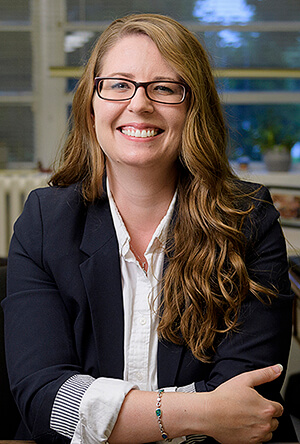March 10, 2020
Study: Doctors, nurses can break ‘stigma of silence’ that sexual violence survivors face

An analysis of 16 in-depth interviews with women who had experienced rape, molestation, coercion or other forms of sexual violence, published online in the Journal of Interpersonal Violence, shows that communication was key to coping with and making sense of their experiences, despite facing a “stigma of silence” in their families and communities. (Raw Pixel stock photo)
WEST LAFAYETTE, Ind. — The American College of Obstetrics and Gynecology recommends universal sexual violence screenings during routine visits. Although one in three women in the United States experience sexual abuse, research has shown that these discussions often don’t take place.
 Stephanie Meier
Download image
Stephanie Meier
Download image
“Health care providers can be that pillar for sexual violence survivors to share those experiences and get support or wraparound care, even in situations where they don’t have community or family support,” said Stephanie Meier, a doctoral student in the College of Health and Human Sciences at Purdue University. Meier’s research focuses on women’s decision making about reproductive health care.
An analysis of 16 in-depth interviews with women who had experienced rape, molestation, coercion or other forms of sexual violence, published in the Journal of Interpersonal Violence, shows that communication was key to coping with and making sense of their experiences, despite the women facing a “stigma of silence” in their families and communities. The respondents were part of a larger study of the reproductive health experiences of 70 women, ranging from 19 to 78 years old and living in South Carolina.
“It wasn’t a question that we were actually asking them about, so all of these women had self-disclosed that they had experienced sexual violence of some nature as part of the overarching conversations about their reproductive and women’s health,” said Meier, the corresponding author of the paper. “They conceptualized it as part of their overall health experiences.”
 Andrea DeMaria, an assistant professor of public health at Purdue University, has conducted surveys and in-depth interviews with women across the United States and internationally about their reproductive health experiences. (Purdue University photo/John Underwood)
Download image
Andrea DeMaria, an assistant professor of public health at Purdue University, has conducted surveys and in-depth interviews with women across the United States and internationally about their reproductive health experiences. (Purdue University photo/John Underwood)
Download image
Sexual violence can range from harassment and assault to family planning coercion and lack of bodily autonomy, said Andrea DeMaria, an assistant professor of public health at Purdue and co-author of the paper.
In 2016, DeMaria co-led an interdisciplinary research team in Charleston, South Carolina, to record and archive the 70 in-depth interviews as part of an oral histories project, which documented women’s reproductive health experiences across generations. Previous findings on menstruation and postpartum sexual activity were published last year. Results have been analyzed and published by scholars at Purdue, Johns Hopkins University and the College of Charleston.
“These 16 women discussed a history of family planning coercion, describing how their partners controlled their ability to prevent pregnancy or the number of children they desired. They also disclosed a history of sexual violence and assault,” DeMaria said. “These women who experience sexual violence may have more touchpoints and more opportunities to interact with health care providers as a result of their risks and experiences. We can do better in training our doctors and nurses to understand and probe on sexual violence as part of routine reproductive health care.”
 Laura Schwab Reese, an assistant professor of public health at Purdue University, researches intimate partner violence and child abuse. (Courtesy photo)
Download image
Laura Schwab Reese, an assistant professor of public health at Purdue University, researches intimate partner violence and child abuse. (Courtesy photo)
Download image
In the #MeToo era, more women may feel empowered to discuss their experiences with sexual violence, said Laura Schwab Reese, Purdue assistant professor of public health. She is co-author of the paper and an expert in intimate partner violence and child abuse. She said previous research shows that training is critical when it comes to helping those in crisis.
“There’s still a lot of stigma around being the victim of a sexual violent crime, and we’re seeing it change a little bit,” Schwab Reese said. “The #MeToo movement has really allowed women to speak out more. Health care providers need to be prepared. Even though you don’t want to hear someone is having a terrible experience, you can be more prepared. That level of preparedness translates to better experiences for survivors.”
The research is an initiative of the College of Charleston’s Women’s Health Research Team. The team investigates health issues specific to women and adolescent girls, promotes interdisciplinary research collaborations, and communicates research findings and health-related information to empower women and girls in South Carolina and beyond. The research was funded in part by the College of Charleston’s Faculty Research and Development Grant and Office of Undergraduate Research and Creative Activities.
About Purdue University
Purdue University is a top public research institution developing practical solutions to today’s toughest challenges. Ranked the No. 6 Most Innovative University in the United States by U.S. News & World Report, Purdue delivers world-changing research and out-of-this-world discovery. Committed to hands-on and online, real-world learning, Purdue offers a transformative education to all. Committed to affordability and accessibility, Purdue has frozen tuition and most fees at 2012-13 levels, enabling more students than ever to graduate debt-free. See how Purdue never stops in the persistent pursuit of the next giant leap at purdue.edu.
Writer: Joseph Paul, 765-494-9541, paul102@purdue.edu
Sources: Stephanie Meier, meier11@purdue.edu
Andrea DeMaria, 765-494-8300, ademaria@purdue.edu
Laura Schwab Reese, 765-496-6723, lschwabr@purdue.edu
Note to Journalists: A copy of the paper is available to journalists by contacting Joseph Paul, Purdue News Service, 765-494-9541, paul102@purdue.edu. A sexual violence illustration and portraits of the co-authors are available to journalists via Google Drive: https://purdue.university/3ax1Gda.
ABSTRACT
“I’m More Open to Talking About It”: Women’s Experiences With Sexual Abuse and Reproductive Health
Stephanie Meier, MA, Kristin Brig, MA, Cara Delay, PhD, MA Beth Sundstrom, PhD, MPH, Laura Schwab-Reese, MA, PhD, and Andrea L. DeMaria, PhD, MS
DOI: 10.1177/0886260520905077
Approximately one in three women experience sexual abuse, which can result in negative reproductive health consequences. A history of sexual abuse may negatively impact health care seeking and experience. The purposes of this article were to understand how women perceived their sexual abuse experiences and how these experiences integrated into their overall reproductive health, reproductive planning, and health care access. As part of a larger study about women’s reproductive health, researchers analyzed 16 in-depth interviews with women aged 18 years and older (range = 18–78) living in South Carolina (May–November 2016). A constant comparative method of data analysis was completed to explore women’s sexual abuse experiences as they related to reproductive health and health care experiences. HyperRESEARCH 3.7.3 assisted in data organization and management. Limited bodily agency impacted women’s ability to engage in family planning, particularly when partners utilized sexual coercion to maintain desired relationships and attain desired family size, regardless of women’s preferences. In addition, limited sexual violence and abuse discussion in health care contexts impacted women’s autonomy in reproductive health decision-making despite participants’ desire to engage in these discussions with providers. Participants expressed a desire for communication about their sexual abuse experiences; however, results indicated women had to navigate stigma within families and communities, which deterred disclosure and open discussion. Negative health outcomes and desire to discuss these experiences within the health care context highlighted a need for patient–provider communication about sexual abuse history as one aspect of gynecologic care. Findings from this study offer practical recommendations to guide communication about sexual abuse within reproductive health care experiences to empower women in their reproductive health choices. As these experiences may impact overall health and reproductive choices, provider-initiated conversations with adolescents and women may improve care and assist in prevention efforts, including the prevention of negative health outcomes.

